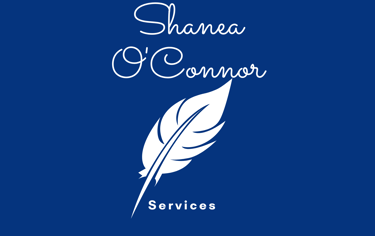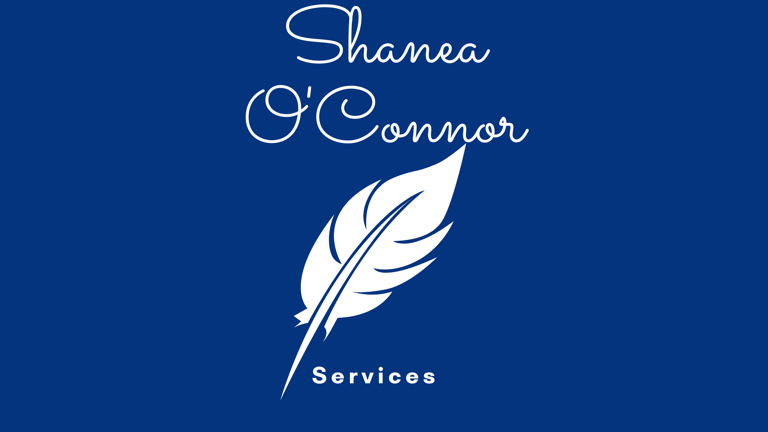Don't Get Scammed: Protecting Yourself from Fraudulent Legal Services in California
Estate planning, real estate deeds, and other legal matters are critical aspects of our lives, requiring careful attention and legitimate expertise. Unfortunately, a growing number of individuals and organizations offer fraudulent legal services, preying on people looking for affordable assistance. Understanding the red flags and knowing where to find legitimate help is crucial to protect yourself and your assets.
SERVICESLEGAL DOCUMENT ASSISTANT
Shanea O'Connor
7/14/20254 min read


Estate planning, real estate deeds, and other legal matters are critical aspects of our lives, requiring careful attention and legitimate expertise. Unfortunately, a growing number of individuals and organizations offer fraudulent legal services, preying on people looking for affordable assistance. Understanding the red flags and knowing where to find legitimate help is crucial to protect yourself and your assets.
The Lure of "Low-Cost, All-Inclusive" Scams
Imagine receiving a flyer in your mailbox: "Affordable Estate Planning! All Attorney Fees Included! Limited Time Offer!" It sounds appealing, especially when legal costs can be daunting. You look up the company online, eager to learn more, but find very little concrete information—perhaps a vague website with generic stock photos and no verifiable attorney names or bar numbers. This is a classic warning sign of a potential scam.
These fraudulent operations often promise quick, cheap solutions for complex legal issues. They might claim to include "all attorney fees" but in reality, they either aren't licensed attorneys, or they provide substandard, incomplete, or entirely incorrect legal documents that offer no real protection. When you pay, they disappear, leaving you with invalid paperwork and a significant financial loss.
Signs of Fraudulent Legal Services
Being vigilant is your best defense. Here are key indicators that a legal service provider might be fraudulent:
* Unsolicited Offers and High-Pressure Tactics: Be wary of anyone who contacts you out of the blue, especially through flyers, cold calls, or door-to-door sales, pushing for immediate decisions. Legitimate legal professionals rarely use such aggressive marketing.
* "Too Good to Be True" Promises: If the price seems incredibly low for a comprehensive legal service, it probably is. Proper legal work requires time, expertise, and a reasonable fee.
* Vague or Missing Credentials: A legitimate attorney will have their State Bar number clearly displayed and easily verifiable. Legal Document Assistants (LDAs) must also be registered in their county. If you can't easily find this information or if they refuse to provide it, walk away.
* No Written Contract or Unclear Terms: Reputable providers will always offer a detailed written contract outlining the services, fees, and responsibilities. Be suspicious of verbal agreements or contracts with confusing, ambiguous language.
* Requests for Unusual Payment Methods: Scammers often prefer cash, wire transfers, cryptocurrency, or gift cards, as these methods are difficult to trace and recover. Legitimate legal services typically accept checks, credit cards, or bank transfers.
* Impersonation and Misleading Titles: Fraudsters might call themselves "trust advisors," "senior estate planners," or "financial experts" without being licensed attorneys. Some even impersonate actual lawyers or law firms. Always verify credentials with the appropriate regulatory body.
* Discouragement of Second Opinions: A genuine professional will encourage you to understand your options and seek independent advice if you have doubts. Scammers will pressure you to sign quickly and discourage any outside consultation.
* One-Size-Fits-All Solutions: Legal needs are unique. Be suspicious if someone offers a generic "trust kit" or claims everyone needs a specific type of trust, without thoroughly assessing your individual circumstances.
* Lack of Physical Address or Online Presence: A legitimate business will have a verifiable physical address and a professional online presence with clear contact information and reviews (though be mindful of fake reviews). Minimal or generic online information is a red flag.
Finding Legitimate Low-Cost Legal Services in California
While avoiding fraud, it's also important to know that legitimate low-cost legal assistance is available in California. Here are some reliable avenues:
* Legal Aid Organizations: These non-profit organizations provide free or low-cost legal services to individuals and families who meet specific income requirements. They often specialize in areas like housing, family law, employment, and public benefits.
* LawHelpCA.org: This comprehensive website is an excellent starting point to find legal aid offices in your area and learn about the types of law they cover.
* Legal Aid Association of California (LAAC): LAAC is the statewide membership organization of legal services nonprofits and can help you find member organizations in your region.
* Legal Services Corporation (LSC): LSC funds 130 independent non-profit legal aid organizations across the U.S., including many in California. You can search their website by address to find a funded organization near you.
* California Courts Self-Help Centers: All California Superior Courts offer free self-help programs. Staff at these centers can provide legal information, help with forms, and explain your legal options, though they cannot provide legal advice or representation.
* Certified Lawyer Referral Services: Many county bar associations operate certified lawyer referral services. These services can help you find attorneys who offer initial consultations at a reduced rate or who specialize in your specific legal issue.
* Law School Clinics: Some law schools operate legal clinics where law students, under the supervision of experienced attorneys, provide free legal assistance to the public in specific areas of law. Contact local law schools for information.
Legal Document Assistants (LDAs) in California:
LDAs are non-attorneys who are registered and bonded in the county where they primarily do business. They can prepare legal documents for individuals who are representing themselves (pro per).
Crucially, LDAs cannot provide legal advice, explain legal options, or recommend a course of action. Their role is limited to preparing documents based on your instructions.
Ensure any LDA you consider is properly registered and understands the limitations of their services. They should provide a clear written contract that explicitly states they are not attorneys and cannot offer legal advice. You can verify their registration with the county clerk's office.
Protect Yourself, Stay Informed
Navigating legal matters can be complex, and seeking affordable assistance is understandable. However, it's vital to prioritize legitimate, ethical services over enticing but fraudulent offers. Always do your due diligence, verify credentials, and be skeptical of anyone promising quick fixes or pressuring you into immediate decisions. By understanding the signs of fraud and knowing where to find legitimate resources, you can protect yourself and ensure your legal needs are met effectively and legally.
Shanea OConnor is a registered and bonded legal document assistant in San Francisco County who is committed to assisting consumers looking for legal assistance with integrity Reach out to her today to learn more about the services she provides!
Contact


945 Taraval Street #1095 San Francisco, CA 94116
By Appointment Only
Shanea OConnor is not an attorney and can only prepare documents at your specific direction.
Legal Document Assistant Registered in San Francisco County #2024-0000109
Expires 11/2026
Registration Number #2024-000104 Ex. 11/14/2026
415-347-9258
shanea@soconnornotary.com
